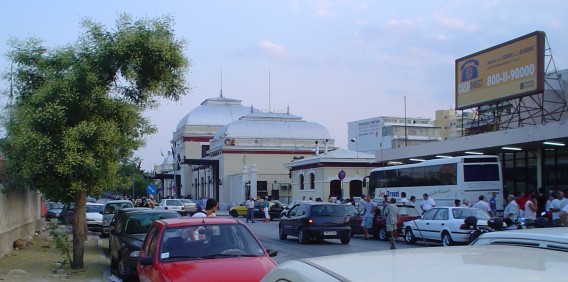Sidste Nyt fra Albanien, Kosóva og Makedonien
Serbien og Montenegro
The Latest News from Albania, Kosóva and Macedonia
# 280 - 16.11.2005 Version: 1.1 - 21.11.2005 PDF for printing
Udgiver: Bjørn Andersen
Publisher: Bjoern Andersen

The old Peloponnes' Railway Station in Athens. A common meeting place for Albanians. Photo: Andreas Roepke, 2005